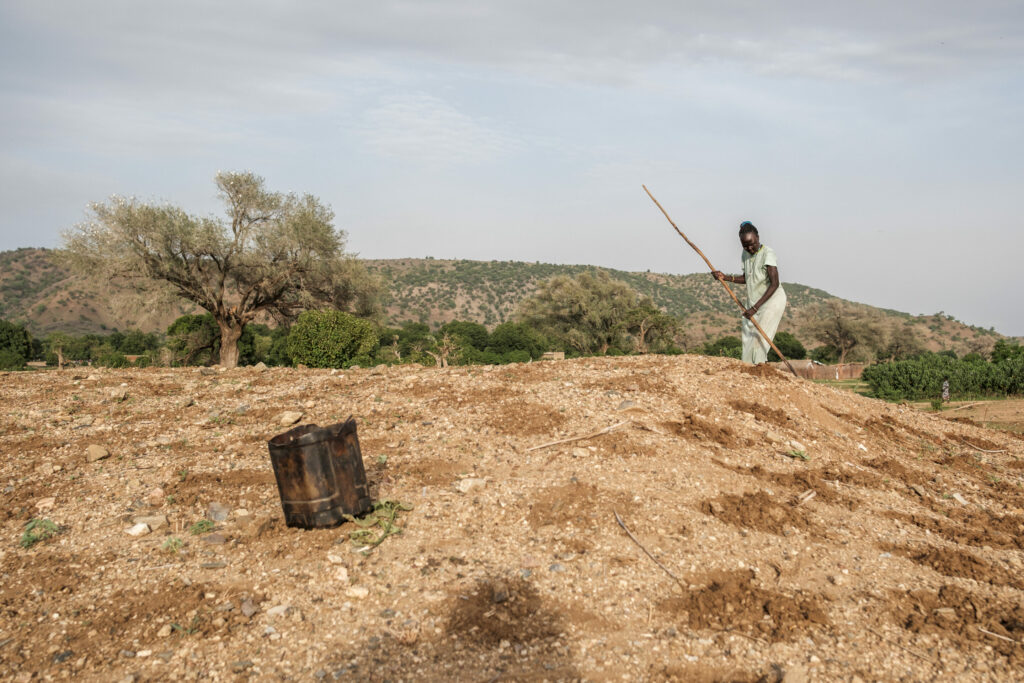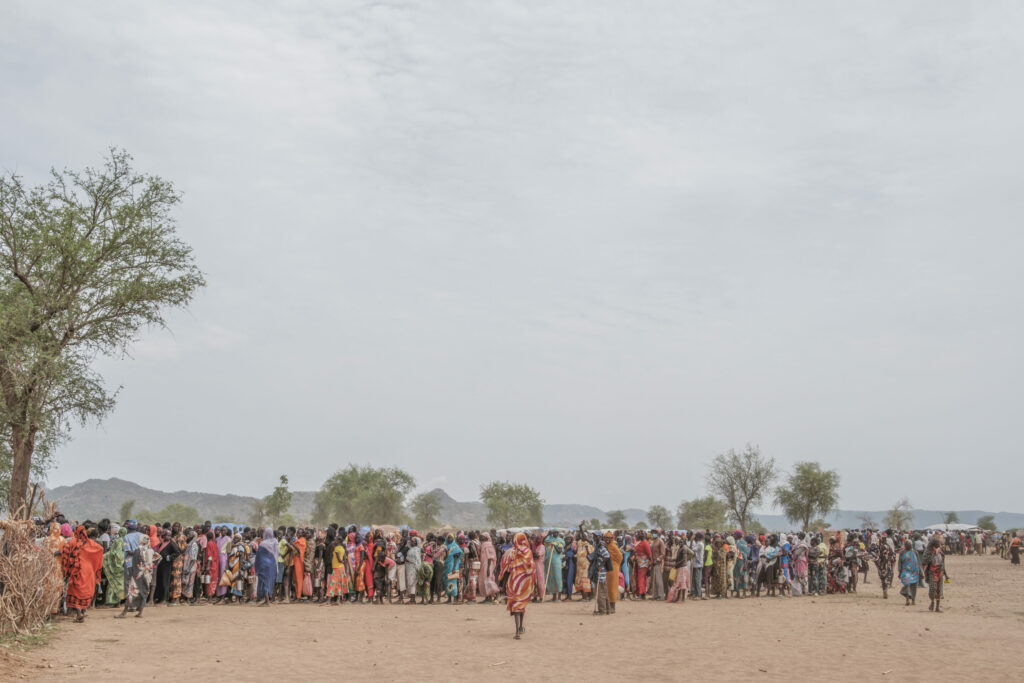While the situation in the Middle East is overshadowing other crises in the world, the on-going civil war in Sudan has recently drawn the attention of the EU because of the unprecedented humanitarian crisis in the country.
In a speech last week in the European Parliament delivered by European Commission Vice President for Values and Transparency, Věra Jourová, on behalf of High Representative Josep Borrell, the Commission stated that the conflict in Sudan has generated displacement at levels unseen since the war in Syria.
“With now 10.9 million internally displaced persons in Sudan, and an additional 2.2 million people having crossed the border into the neighbouring countries, Sudan is the largest displacement crisis worldwide, surpassing even the scale of the crisis in Syria which is 13.1 million vs 12.3 million.”
Close to 25 million people are in urgent need of humanitarian aid in Sudan. Due to the numerous access constraints, only a third of the people in need were able to receive some kind of humanitarian aid so far, which means 8 million.
“After over a year and half of conflict, this is unacceptable,” the statement says and compares the humanitarian situation in Sudan with Gaza. The situation in Gaza is also disastrous but the number of aid trucks which have entered Darfur in the western part of Sudan is about 10 times less than the total amount of trucks entering Gaza.
Fueling the civil war
The civil war in Sudan started in April 2023 and is fueled by weapons deliveries from regional and international sponsors. “The responsibilities for this man-made calamity rest with the Sudanese Armed Forces (SAF) and the Rapid Support Forces (RAF) as well their respective affiliated militias.” In a statement in September the High Representative warned about another genocide in Sudan.
The statement stressed the need for “strengthened pressure on those external actors providing support to the warring parties” and referred to the EU – Gulf Cooperation Council Summit on Wednesday as an opportunity to continue EU’s “diplomatic outreach notably with the United Arab Emirates (UAE), who have leverage with both belligerent parties”.
According to media reports, UAE is delivering armored vehicles and other military equipment to the RAF while also providing humanitarian aid to displaced persons. A high-ranking EU official confirmed on Friday that the issue of the involvement of the Gulf states will be raised by the EU at the ministerial meeting at the summit.
According to a report last July by Amnesty International, the mandatory UN weapons embargo on Sudan which has been in place for two decade is not enforced. Recently manufactured weapons and military equipment from countries such as Russia, China, Turkey and the UAE are being imported in large quantities into Sudan, and then diverted into Darfur.
EU imposed the first sanctions against both sides in the war in January 2024. Currently only six individuals and six entities in Sudan are subject to travel restrictions and the freezing of assets. The EU official admitted that the EU has to increase the pressure on the warrying parties in Sudan.
A Commission spokesperson said that time is of essence. All external partners must work towards a solution and refrain from refueling an already explosive situation. The civil war in Sudan has caused the world’s biggest displacement crisis and the worst hunger level ever recorded. Estimates of the number of deaths run into tens of thousands but are highly uncertain.
A senior World Health Organization official said last week that after 18 months of war more than 25 million people - over half the population of Sudan- are in desperate need of food and healthcare. "Without immediate intervention, famine and disease will claim countless more lives."

A woman prepares the land around her house to plant Sorghum shortly after the first rains arrived in Kauda. As a hunger crisis spreads through the region with Sorghum a staple, she hid her remaining seeds to not be tempted to eat them before being able to plant them to provide food from her 10 children in the Nuba Mountains. Credit: Guy Petersen/Mercy Corps
Lack of humanitarian access
“Access and delivery of humanitarian aid remains paramount,” the EU statement continued. “The establishment of safe havens and protecting humanitarian routes should urgently be put in place.” Does the EU have humanitarian access to Sudan?
A Commission spokesperson told The Brussels Times that deploying assistance in such as complex context as Sudan is one thing and ensuring that it actually reaches people in need is another thing. The Commission decided on €72 million in humanitarian aid for 2024.
Furthermore, at the International Humanitarian Conference for Sudan and neighbouring countries on 15 April in Paris, the EU pledged €354 million in aid. The event was co-hosted by France, Germany and the EU. In total over €2 billion was pledged, including €511 million by the World Bank, €244 million by Germany and €110 by France. The Gulf states pledged smaller amounts.
However, according to a spokesperson of Mercy Corps, an international aid organisation active in Sudan since 2004, the international community is failing to live up to the pledges made at the Paris conference. Only about half of the annual Humanitarian Response Plans for Sudan since 2018 have been met, according to the UN’s Financial Tracking Service.
How can aid organisation deliver assistance in this situation? “Hundreds, if not thousands of both international and local humanitarian aid workers are striving to deliver assistance in Sudan,” Robbert van den Berg, Director for Mercy Corps in The Netherlands, told The Brussels Times.
“The issue is that a cross-border and cross-frontline movements are nearly impossible. NGOs face enormous challenges to deliver aid, including bureaucratic impediments, deliberate denials of access by parties to the conflict, and attacks on communities that limit access to those affected. Many areas at high risk of famine are not accessible.”
“This is why the diplomatic pressure from the international community, including the EU and its member states, is critical to allow free and unfettered humanitarian access into and across the country to avert a widespread famine.”
What are the estimates of the humanitarian aid organisations of the size of the population in need? “The WHO figures are correct,” he replied. Among 25 million that suffer from acute food insecurity, 755,000 people face catastrophic hunger while a further 8.5 million people or 18% of the population are in emergency level of hunger.”
In Darfur, an assessment by Mercy Corps revealed that nine out of ten children, many those under five, are suffering from life-threatening malnutrition. More than 90 percent of children screened across five locations in Central Darfur are experiencing some form of acute malnutrition. “We haven’t seen such a desperate situation since the 1984 famine in Darfur,” a community leader told Mercy Corps.
Despite the access and conflict dynamics, organisations like Mercy Corps are continuing to deliver life-saving aid to communities in need since the beginning of the conflict, including in areas worst affected by hostilities like Khartoum, South Darfur, or South Kordofan.
“We provide immediate cash assistance to displaced communities, allowing them to purchase basic necessities with dignity while also supporting local markets amidst the ongoing conflict. Mercy Corps has supported nearly 80,000 people with cash transfers since the war started. Most private sector actors believe they would be able to increase their activities if there was sufficient consumer demand.”
How does the EU respond to the humanitarian crisis in Sudan? “By July 2024, 65% of the funds pledged by the EU and Member states had been disbursed. However, the pace of funding distribution has been slow, hindering efforts to prevent famine and worsening conditions. The EU, like other donors, must expedite its funding processes and front-load funding on a no-regret basis to avert further catastrophe.”
M. Apelblat
The Brussels Times

